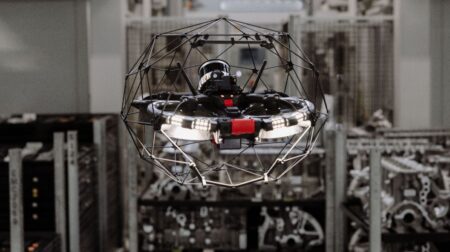Venturi Astrolab, Inc. (Astrolab) has reached an agreement with Space Exploration Technologies (SpaceX), which will see the latter transport Astrolab’s Flexible Logistics and Exploration (FLEX) rover as part of an upcoming lunar expedition.
Astro-logistics is one part of the broader space-logistics supply chain, which involves both the terrestrial and extra-terrestrial transportation and supply of materials needed for space exploration.
In order to transport the system, SpaceX will use the Starship launch and landing system. The mission could take place as soon as mid-2026, according to Astrolab.
What’s more, upon completion of the mission, Astrolab’s FLEX – which has a combined rover and cargo mass of more than two tons – will have become the largest rover to ever explore the Moon’s surface.
The FLEX rover is nearly three times the mass of its largest predecessor, with Astrolab claiming this increased capacity provides more opportunities to conduct scientific experiments.
“Our Astrolab team has created much more than a rover for use on the Moon or Mars,” said Jaret Matthews, Founder and CEO of Astrolab.
“We’ve created a logistics system that can accommodate a wide variety of cargo. We expect that that this approach will help establish a permanent lunar outpost on the Moon at a lower cost and in less time than previously envisioned. We are delighted that this contract with SpaceX will allow Astrolab to demonstrate the advantages of the FLEX rover and its modular payload system.”
The company designed FLEX to make it adaptable to multiple missions requiring a planetary rovers. This differs from the traditional model of creating bespoke solutions for each mission, which it says is more expensive and less efficient.
The FLEX rover was designed to transport and deploy payloads using a modular system, with Astrolab seeking to prove the benefits of developing a versatile rover that can perform a variety of tasks on the Moon’s surface.
“Starship is designed to transport large amounts of cargo, including rovers, to the Moon and Mars for research and exploration,” said Tom Ochinero, senior vice president, commercial business, SpaceX.
“Developing sustainable outposts will require lunar logistics and transportation on the surface of the Moon, like what Astrolab offers. We look forward to working with the Astrolab team to deliver their FLEX Rover to the surface of the Moon.”
Astrolab also designed the vehicle to act as an unpressurised rover for a crew of two astronauts on the lunar surface, with the company beginning tests of a full-scale, fully functional terrestrial prototype of the FLEX rover in the California desert last year.








